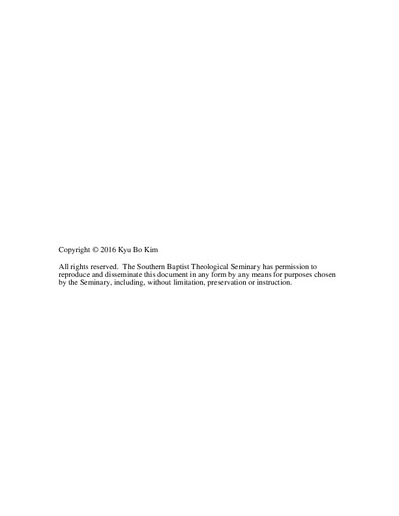Embracing Trauma in Theodrama: Embodying Christiformity
Abstract
This dissertation argues that the theodramatic understanding of trauma and relevant therapeutic practices help traumatized people reframe the reality of trauma within God’s drama of redemption and thereby enable them to embrace it in the process of Christiformity, which is the God-given way of human healing and flourishing.
Along the way this inquiry explores four main areas. First, it reviews diverse naturalistic approaches to trauma and develops a Christian psychological alternative—a Christian psychopathology of trauma which takes into accounts the effects of sin, damage, and suffering. This Christian psychopathology provides a holistic perspective of the person by considering the neurobiological, psychosocial, sociocultural, and spiritual dimensions of a person and honors the primary authority of Scripture. Second, this study attempts to look beyond the symptoms and diagnoses of trauma to reframe it in terms of theodrama. Theodrama reveals that trauma is not the final reality of the believer’s life: redemption and consummation will come. This work shows that those who are living in God’s sovereign drama can actively participate in a faithful, missional life even in the midst of trauma. Third, it argues that Christiformity in theodrama is the faithful and therapeutic Christian response to trauma. Finally, this dissertation proposes a theodramatic therapy, which helps counselees embrace trauma and live a new way of life by embodying Christiformity. It also provides the theological reflections of the problem of theodicy, encouraging the practice of pastoral theodicy.

